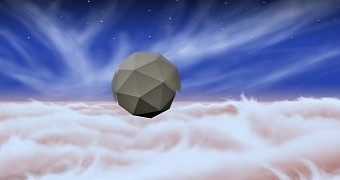Gas giants don't really have accessible ground on which you could send normal six-wheeled robots like we did on Mars. However, this doesn't stop NASA scientists from sending probes on gas giants like Jupiter.
Consider Mars as a maturity test for NASA's rovers as they walk on solid ground and move quite close to home for accurate command signals to be sent fast with a certain degree of accuracy from NASA HQ all the way to the Red Planet.
However, when it comes to planets infinitely farther away like Enceladus or Jupiter itself drones or robots will have to be much more advanced and rely on much more unstable conditions to conduct research and beam back home reliable data.
In this regard a team of NASA scientists believe that the only way to study massive gas giants like Jupiter is to send flying drones that will float in the atmosphere for extended periods of time, without depending on wings, motors or air balloons. Even the terminology is different as they are called "windbots" instead of robots because they will harness no other resource, neither solar nor nuclear, except wind, to stay aloft in the gas storms of Jupiter.
Jupiter or not, all research is useful here on Earth
In this regard, scientists want to develop robots that can be powered by turbulence as wind will be a major impediment to any form of stability while in Jupiter's atmosphere, so the best way to stay afloat is to use it. However, because wind on Jupiter changes speed and direction so violently, a way to profit from the energy caused by turbulence must be gathered. In this regard, NASA thinks that technology similar to wristwatch power delivery through hand shaking might work well with their design. Although not completely proven, and without any prototype built, NASA scientists believe that in theory this might work.
Although many other things have to be taken into account as well, like the windbot's aerodynamics, shape and sensors, it's believed that all the team can learn while facing this enormous challenge could be applied much easier here on Earth's violent storms. Inventions and tech that's being made for Jupiter could one day help us discover more about our planets tornados and hurricanes without ever needing to leave our planet's atmosphere.

 14 DAY TRIAL //
14 DAY TRIAL //